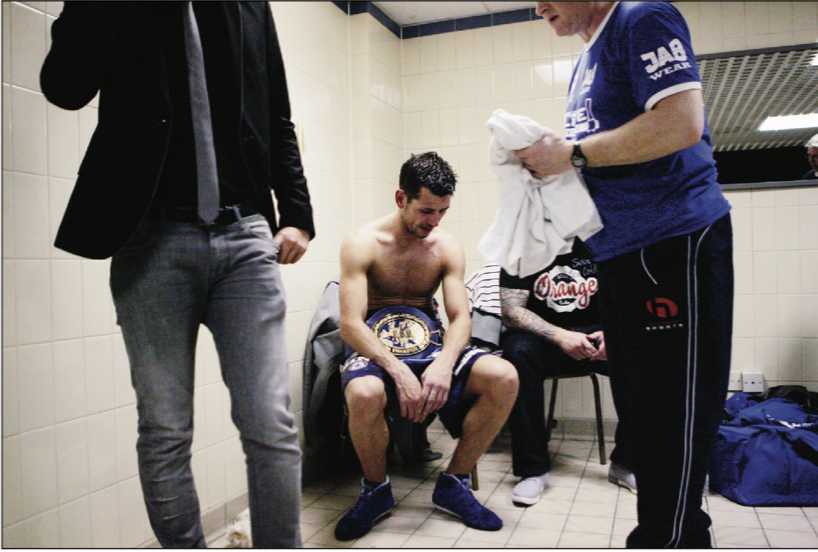Former Premier League referee MARK HALSEY, author of Added Time: Surviving Cancer, Death Threats and the Premier League, gives his thoughts on the latest development in football in the first of a new series of articles written exclusively for Floodlit Dreams….
THE GAME we know and love has come to an end and a new era is starting with VAR – Video Assistant Referee. For me, that’s a good thing. The pace of the game is so quick nowadays that it’s sometimes impossible for referees to see things correctly and detect incidents in real time. With football a multi-billion pound business, we’ve got to be getting the key match decisions correct.
There are four scenarios to VAR: penalty incidents, goals, mistaken identity and red cards. Essentially, all of the key areas are covered, making it easier for referees and helping to prevent a lot of dissent from players. There’s no point in arguing against a black and white VAR decision.
There is a point, however, in arguing against a subjective VAR decision and that’s something we have to get away from.
VAR should only come in when there’s a clear error by the match officials. At the moment, that just isn’t happening. Everything seems to be getting referred to VAR.
That’s affected refereeing. You can see it at the moment in the Women’s World Cup, where assistant referees are keeping their flag down even when the attacker is three or four yards offside. They want to let play continue in case they prevent a goal with an incorrect flag, but letting obvious ones go could lead to a situation where a player who’s clearly offside runs through on goal and collides with the goalkeeper, causing an injury.
The flip side of that is we’re seeing players penalised by VAR for offside when they’re millimetres beyond the last defender. Think of Sterling in the Champions League quarter final, Lingard in the Nations League semi-final; if they’d have been one boot size smaller, then they would have been onside, their goals would have counted, and their teams would have progressed to the next stage of the competition. In those situations I believe a goal has to be given.
Despite VAR, the referee in the middle will always want to get the key match decisions correct and so I don’t think that VAR’s introduction will lead them to letting more things go. Referees pride themselves on consistent performances and consistently detecting key match incidents. They won’t want to keep getting referred for review.
Training and education can help English football use VAR in the best way possible. When should an incident be referred? What’s a clear and obvious error? What’s subjective and what’s objective? Clear answers will help VAR enhance a game, rather than dominate it. Nobody wants to see a stop-start game with constant VAR checks that disrupt the flow.
Experienced referees have a part to play. They should be the ones checking the VAR monitors and flagging when a decision needs to be referred. At the moment, we have a situation where inexperienced referees in a truck full of TV screens are directing the experienced referees in the middle. That makes it tough, especially when English football hasn’t yet decided whether the referee in the middle makes the final call on a decision.
Take last season’s FA Cup tie between Wolves and Manchester United, for example. Martin Atkinson gave Victor Lindelof a red card for a challenge of excessive force that endangered a player’s safety. The incident was then referred to VAR, where it was deemed that the challenge was only worthy of a yellow.
First of all, Martin Atkinson made the correct decision. Lindelof’s challenge was a red card offence. Even if some thought it wasn’t, the decision wasn’t a clear and obvious error. It was subjective. Second, the VAR referee wasn’t as experienced as Martin Atkinson, so why should they have overruled him?
In England, we need to allow the referee in the middle to review their decision on the monitor before making a final decision. IFAB protocol states that the on-field referee has to make the final decision, not someone sitting miles away in a studio.
Whatever happens, VAR is going to have a massive impact on English football next season. Coupled with changes to the laws of the game, such as handballs, it’s going to lead to many more penalties and match-defining moments. How we develop it from here will define how effective it is. If we can make it objective as possible, it’ll be fantastic. If we can limit it to clear and obvious errors, it’ll be fantastic. And if we can provide training and education to all referees, I’m sure we’ll make it work.
Mark Halsey’s book, Added Time: Surviving Cancer, Death Threats and the Premier League, is available now for £6.99: https://www.floodlitdreams.com/product/added-time/



Leave A Comment